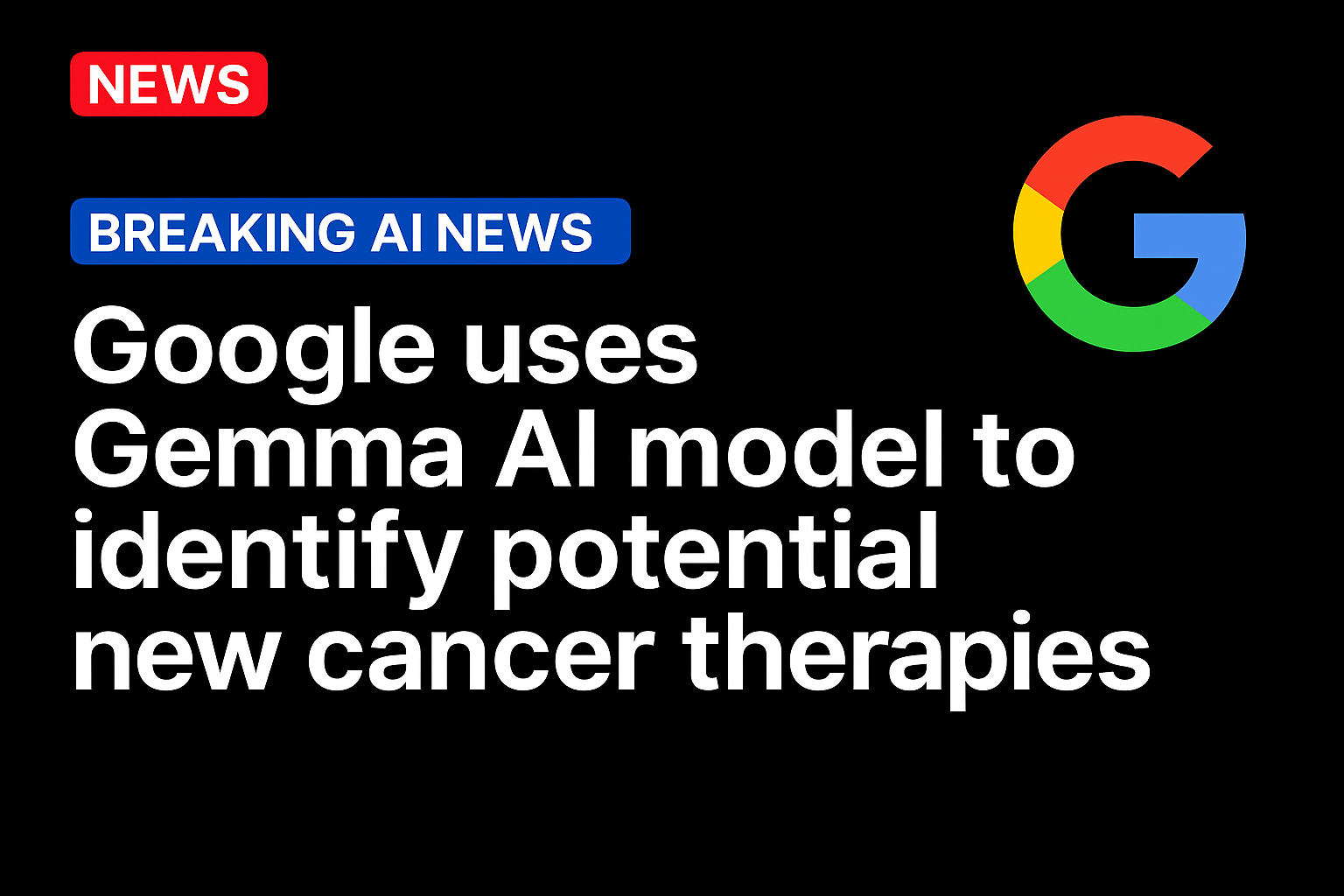
Google said its open-source Gemma AI model helped scientists identify a potential new biological pathway for cancer therapy, according to a release by Google. The company said the finding demonstrates how smaller, open models can play a role in high-impact scientific research typically dominated by large, proprietary systems. The effort also marks one of Google’s most concrete applications of open-weight AI in healthcare to date.
The discovery came from a collaboration between Google’s health research teams and external scientists using Gemma, a lightweight generative AI model released earlier this year. Researchers found that Gemma could analyze large genomic and biomedical datasets to surface previously unseen protein interactions that traditional computational models had missed.
According to Google, the model identified a gene network involved in tumor suppression and drug resistance, potentially enabling the development of targeted cancer treatments. The findings have been submitted for peer review, and Google said it plans to make the research data publicly available to encourage replication.
Gemma, introduced in February, is part of Google’s effort to make open-source AI models accessible for research and applied science. The model is designed to run efficiently on modest hardware while maintaining strong performance in language and multimodal reasoning tasks.
Google said the cancer research project shows how smaller, specialized models can complement larger systems like Gemini in scientific discovery. By fine-tuning Gemma on biomedical data, Google researchers demonstrated how open AI systems can accelerate drug discovery and enable precision medicine research.
The announcement follows other AI milestones in healthcare. Google DeepMind’s AlphaFold and Alpha Missense models have advanced protein structure prediction and genetic mutation analysis. Earlier this year, DeepMind’s CEO said that AI-designed drugs could reach clinical trials by 2025, reflecting broader confidence in AI’s role in therapeutic innovation as reported by PYMNTS.
Beyond Google, the drug development field has seen a surge in AI-driven investment. Manas AI recently raised $24.6 million to develop AI tools that optimize molecule design. Investors including Reid Hoffman have backed startups using generative models to predict chemical interactions and streamline lab workflows. Experts told PYMNTS that while these systems can accelerate early-stage research, data quality, reproducibility, and clinical validation remain key challenges. They note that many AI-generated compounds still require years of testing to confirm biological effectiveness, highlighting the gap between computational discovery and real-world results.
Source: https://www.pymnts.com/

